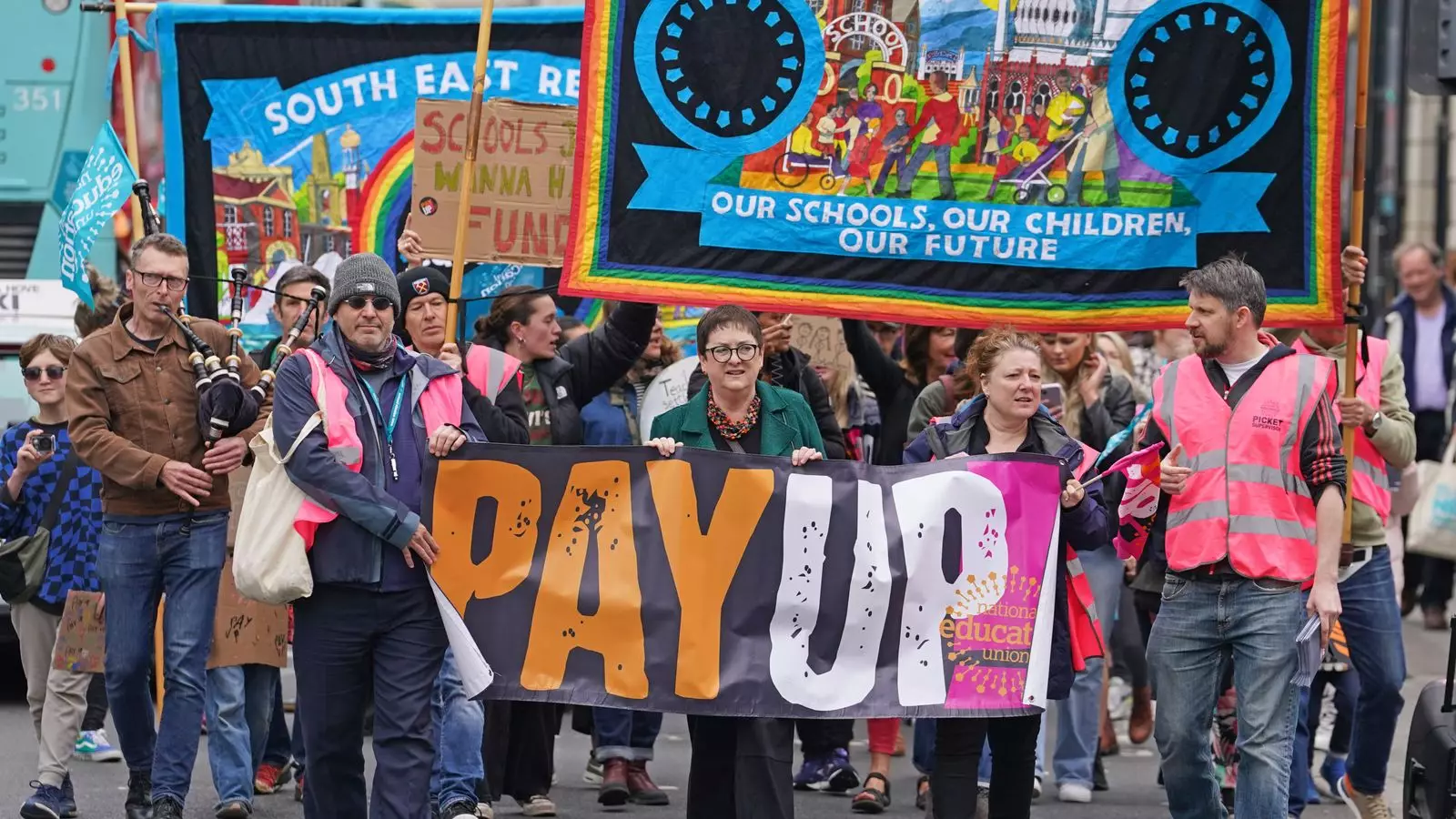The reported proposals for inflation-busting wage hikes, which could cost billions of pounds, have sparked debate over the potential impact on public sector pay. The proposed increase of 5.5% recommended by independent pay review bodies for teachers and NHS staff, among others, is significantly higher than what the government had initially budgeted for. This increase could cost the government in the region of £3bn, with economists estimating a potential need for up to £10bn to cover such a pay rise for all public sector workers.
The significant increase in public sector pay could pose a challenge for the Chancellor’s first budget, especially considering Labour’s promises to control borrowing and avoid tax hikes during the election campaign. With inflation currently at 2%, the government had budgeted for a pay rise between 1% and 3%. However, the proposed 5.5% increase would require additional funding that may not be readily available within existing budgets.
Treasury minister James Murray highlighted the risks associated with not striking a deal on public sector pay, emphasizing the potential for industrial action and long-term challenges in recruitment and retention. The government’s response to the pay review bodies’ recommendations must align with fiscal rules, which are deemed non-negotiable. Failure to reach a settlement could lead to disruptions in essential services provided by teachers, NHS workers, and police officers.
Chancellor Rachel Reeves has underscored the importance of considering the cost of further industrial action and the challenges in recruiting and retaining public sector employees. The decision on public sector pay will be made based on a thorough evaluation of the recommendations from the pay review bodies and the available public finances. Any response to the proposed pay increase must be within the parameters of the government’s fiscal rules, ensuring financial sustainability in the long run.
Labour’s position on public sector pay has been met with mixed reactions, with former Chancellor Jeremy Hunt advocating for restraint to avoid tax hikes. Disregarding the recommendations of pay-review bodies could escalate tensions and lead to strike action, as seen in previous instances of industrial action within the public sector. Building positive relationships with public sector workers is crucial for ensuring a harmonious response to pay issues and other workforce challenges.
The cost of not striking a deal on public sector pay extends beyond financial implications to include risks of industrial action, recruitment challenges, and public service disruptions. The government’s response to the proposed wage hikes must be carefully considered within the context of fiscal rules and long-term financial sustainability. Collaborative decision-making and effective communication with public sector workers are essential for addressing the complexities of public sector pay issues and maintaining a harmonious working environment.



Leave a Reply